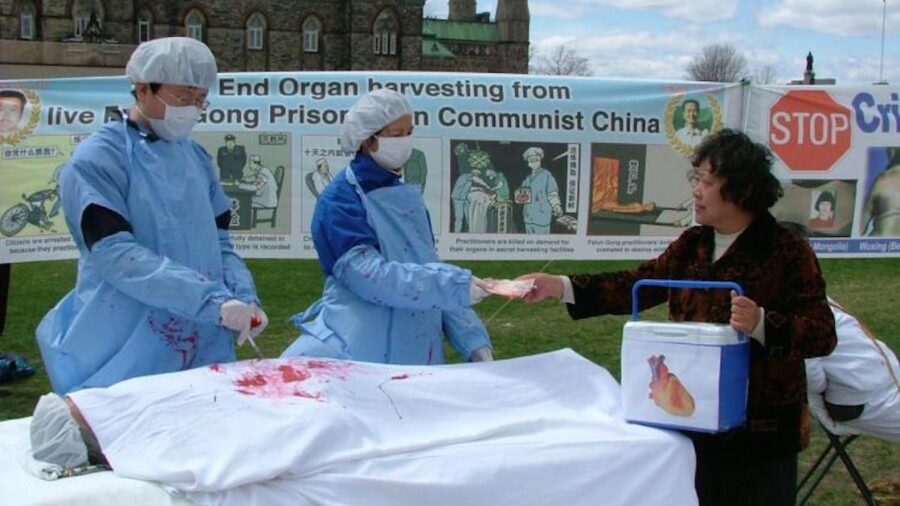A Texas physician is sounding the alarm over the Chinese communist regime’s practice of forced organ harvesting.
Dr. Howard Monsour, who was among the first doctors involved in liver transplantation in the United States in the 1980s, testified last month at the Texas Senate in support of a resolution condemning the “vile practice of forcibly removing human organs for transplant.” The resolution was unanimously adopted by the state Senate on April 15.
A decade ago, Monsour had a patient who developed liver cancer that had spread too far for him to have transplant surgery. He was turned down by several transplant hospitals in Texas. But a Chinese acquaintance told the patient that he could get a liver transplant for $88,000 in China. Against Monsour’s advice, the man went to China and received liver transplant surgery. He ended up passing away from the cancer eight months later.
Monsour, who did not know about forced organ harvesting at the time, now suspects that the liver came from unethically sourced organs in China because the transplant process “happened way too fast,” he told The Epoch Times’ sister company NTD.
While patients in the United States and other countries typically wait months or even years for an organ transplant, the wait times in China are far shorter, and can be as little as two weeks.
These unusually short times, combined with other evidence, led an independent people’s tribunal in 2019 to conclude that the Chinese regime has been forcibly harvesting organs from live prisoners of conscience on a “significant scale.” It found that the main source of organs has been from imprisoned Falun Gong practitioners.
For more than two decades, the regime has detained millions of Falun Gong adherents as part of a sweeping crackdown aimed at eradicating the spiritual practice that had gained significant popularity in China during the 1990s.
Had Monsour known, he said he would have warned the patient about China’s unethical transplant practices.
“We all like to think we’re moral individuals, but when we’re faced with death, you know, we’ll try anything,” he said. “We really have to protect our people from going over and doing this, and we really have to punish the people that are participating in this.”
Monsour, now a gastroenterology specialist in Granbury, Texas, has talked to many medical professionals about the grisly practice over the last year.
Many are unaware of what’s happening and are taken aback when hearing about it, because it “sounds like a horror movie,” Monsour said.
“That’s going to be the challenge—to get people to believe this—because it sounds so horrific,” he added.
Americans, the doctor noted, are somewhat insulated from atrocities perpetrated around the world, so when they come across such things, they may find them hard to believe.
Part of this disbelief stems from a lack of understanding of the Chinese Communist Party, a regime that poses the greatest challenge to the United States in the years ahead, Monsour said.
“We have to understand the mindset behind a government that would take innocent people and kill them and give their organs,” he said. “That says what this government really is … There’s obviously no morals there.”
Monsour particularly hopes that the medical and transplant community can take action to try and curb organ harvesting.
Physicians “swear an oath that first, do no harm,” he said.
“We … swear an oath to have high ethical standards. So I think and I hope that my fellow physicians and transplant physicians will begin to get involved, to try to work to solve this issue and stop this practice.”
The resolution encourages the Texas medical community to warn patients about traveling to China for organ harvesting. It also urges the federal government and Congress to bar U.S. medical and pharmaceutical companies from collaborating with Chinese firms linked with forced organ harvesting. The bill is due to considered in the Texas House of Representatives.
From The Epoch Times

